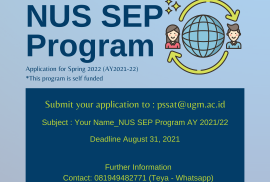Dosen Fakultas Ilmu Sosial dan Ilmu Politik, Universitas Gadjah Mada, Prof. Dr. Phil Hermin Indah Wahyuni, M.Si., dikukuhkan sebagai Guru Besar dalam bidang Ilmu Komunikasi. Dalam pidato yang berlangsung pada Selasa (9/11) di Balai Senat Universitas Gadjah Mada, Yogyakarta, Prof. Hermin menyampaikan pidato yang berjudul Komunikasi Autopoiesis Sebagai Energi Adaptasi Sistem Sosial: Respon, Resonansi, (R)evolusi.
Dalam pidato pengukuhan, Prof. Hermin menyampaikan kompleksnya problem komunikasi dalam masyarakat modern. Menurut pandangan Prof. Hermin, komunikasi sebagai sebuah sistem yang komprehensif dan inti dari sistem sosial (masyarakat modern). Tradisi autopoiesis memiliki potensi sebagai jalan masa depan untuk memahami dan menjelaskan komunikasi dengan segala kompleksitas, baik sebagai ilmu maupun fenomena sosial. Sistem sosial (masyarakat modern) akan terhenti saat tidak ada komunikasi. Produksi dan reproduksi masyarakat ditentukan oleh komunikasi. Sehingga, sistem sosial merupakan sistem komunikasi itu sendiri.










